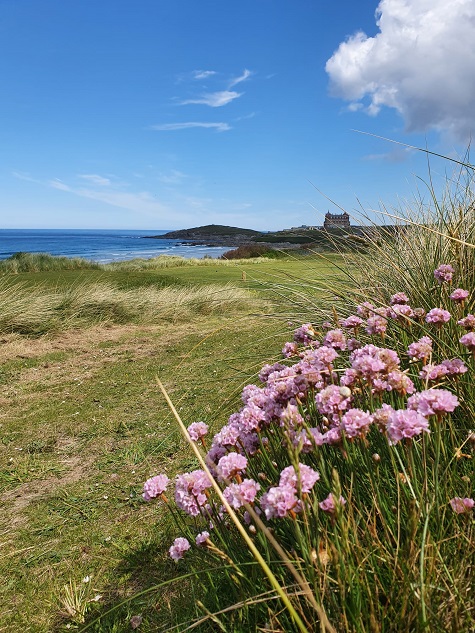
Dan Kendle, head greenkeeper at Newquay Golf Club, has won this year’s Syngenta Operation Pollinator Award - presented at the Golf Environment Awards during BTME 2022.
Situated right on the rugged north Cornish coast and running behind the entire length of Fistral Beach, the course provides an amazing links golf experience, along with providing an immense ecological resource.
Over the past few years, Dan and the team at Newquay have been working hard to refine the long ecological rough areas. “It’s already paying huge dividends, with an increase in wildflower populations in areas which were cut and scarified, including yellow rattle, kidney vetch, birds-foot trefoil and pyramidal orchids,” he reported.
At the same time, he signed the Club up to Syngenta’s Operation Pollinator. “As part of that we over-seeded an area outside our maintenance building with a coastal mix of wildflowers.
“It’s created a lot of positive feedback from both club members and also members of the public. The area has been alive with insects, including several species of bumblebee, including red tailed and garden bumblebees.”

Elsewhere on the course bunkers are used by solitary bees, with sandpit mining bees and sandpit blood bees both having been recorded.
Commenting on his success in Operation Pollinator Awards, Dan said, “To find out we had won the award was amazing.
“It’s a great achievement for us and I want to thank all the team for their hard work they have put in to helping contribute to the award. Along with the members and committee of Newquay Golf Club for their continued support in everything we do.”
Syngenta technical manager, Sean Loakes, added, “Dan has really embodied the spirit of Operation Pollinator in continuing to manage the golf course for the benefit of the Club’s members, while at the same time managing the out of play areas and particularly the ecological rough for the benefit of pollinators and the vast biodiversity.”